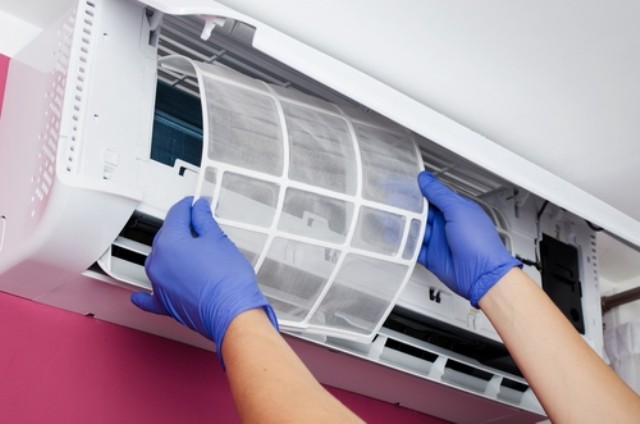Air quality testing in HVAC Heating, Ventilation, and Air Conditioning systems plays a pivotal role in ensuring the health, comfort, and safety of occupants within a building. With the majority of people spending a significant portion of their time indoors, the quality of the air they breathe becomes a critical concern. HVAC systems are designed to regulate temperature, humidity, and airflow, but they can also harbor contaminants that may affect indoor air quality. These contaminants include dust, pollen, mold spores, bacteria, viruses, volatile organic compounds VOCs, and other allergens or pollutants. Without proper testing and maintenance, these pollutants can accumulate within the HVAC system, circulating throughout the indoor environment and potentially causing adverse health effects such as respiratory issues, allergies, headaches, and fatigue. Regular air quality testing is essential for identifying and mitigating potential sources of indoor air pollution within HVAC systems. Testing involves sampling the air for various pollutants and analyzing the results to determine the concentration levels and types of contaminants present.

This information enables building owners, facility managers, and HVAC professionals to implement targeted strategies to improve air quality and prevent health hazards. By identifying specific sources of contamination, such as mold growth, microbial colonization, or chemical off-gassing from building materials or furnishings, proactive measures can be taken to address these issues and minimize their impact on occupants. Furthermore, air quality testing helps ensure compliance with regulatory standards and guidelines established by organizations such as the Environmental Protection Agency EPA and the American Society of Heating, Refrigerating and Air-Conditioning Engineers ASHRAE. These standards set thresholds for acceptable levels of indoor air pollutants and provide recommendations for maintaining healthy indoor environments. By conducting regular testing and adhering to these standards, building owners can demonstrate their commitment to occupant health and well-being while also reducing potential liabilities associated with poor indoor air quality. In addition to protecting human health, air quality testing in HVAC systems can also contribute to energy efficiency and operational performance. Contaminants such as dust and debris can accumulate on HVAC components, impairing their efficiency and increasing energy consumption. By identifying and removing these obstructions through routine testing and maintenance, HVAC systems can operate more effectively, resulting in lower energy costs and extended equipment lifespan.
Moreover, Comfort Techs HVAC Repair proactive air quality testing can help identify potential issues before they escalate into costly problems. Early detection of mold growth, for example, allows for prompt remediation to prevent further spread and damage to the building structure. Similarly, identifying leaks or malfunctioning components within the HVAC system enables timely repairs to maintain optimal performance and prevent disruptions to occupant comfort. In conclusion, air quality testing in HVAC systems is indispensable for maintaining a healthy and comfortable indoor environment. By regularly monitoring and assessing indoor air quality, building owners and facility managers can identify and mitigate sources of contamination, ensure regulatory compliance, improve energy efficiency, and safeguard the well-being of occupants. Investing in comprehensive air quality testing and proactive maintenance measures is not only a prudent decision but also a fundamental responsibility in promoting occupant health and safety in buildings.
